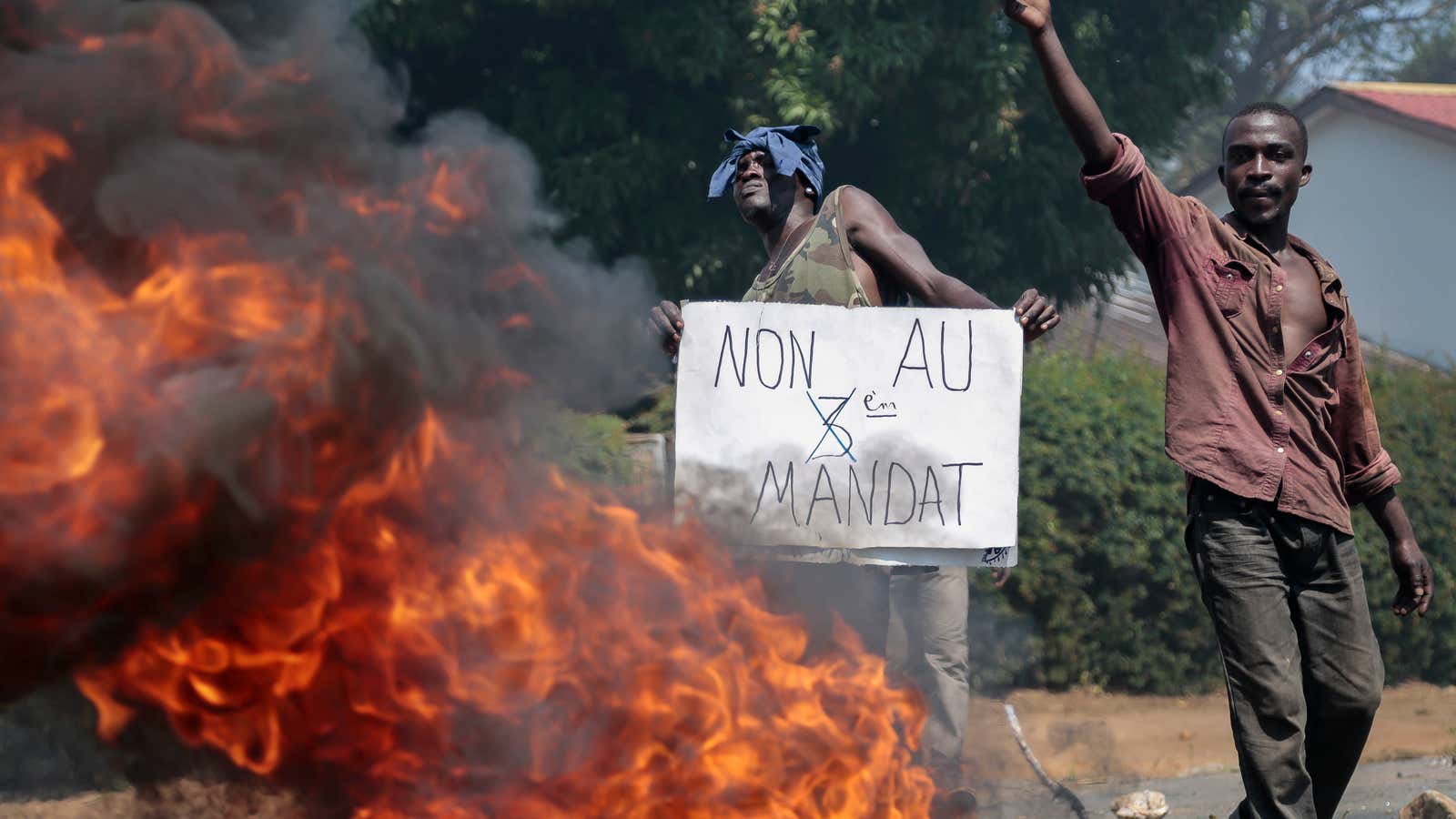Burundians went to the polls yesterday (July 21) to vote in a disputed presidential election that the majority of the opposition have boycotted, claiming that it defies the constitution. With barely any competition, incumbent Pierre Nkurunziza is expected to win handily. The results are expected in a week’s time.
Violence has engulfed the capital, Bujumbura, with reports of the deaths overnight of two police officers and a civilian, who witnesses say is a member of the opposition. Turnout has been low “with voters often outnumbered by campaign workers and the police” in polling places in Bujumbura, the New York Times reports.
Earlier this year, Nkurunziza tried to change the constitution to allow him to seek a third term in office, sparking protests that have claimed at least 70 lives since April and led to a failed coup attempt. ”The elections are just a masquerade because only one party is competing,” one resident told Reuters.
The government is blaming the violence on “terrorist acts” trying to scare people from voting. ”People do it to intimidate voters,” presidential adviser Willy Nyamitwe said. “They don’t want the voters to go to the polls.”
The international community has questioned the credibility of this election. John Kirby, a US state department official, told the Times that the decision to go ahead with the elections will discredit the government and lead to greater instability in the country. Additionally, the US said it is reviewing its relationship with Burundi and will impose “visa restrictions on those it said were responsible for promoting instability.”
The African Union (AU), meanwhile, refrained from sending election observers—the first time that the organization had not done so for an election on the continent since it was formed in 2002—noting that “the necessary conditions are not met for the organization of free, fair and transparent and credible elections.” The UN secretary general, Ban Ki-Moon, echoed the AU’s comments and expressed his concerns.
Since the protests against Nkurunziza erupted in April, thousands have fled to neighboring countries. A thousand people a day are crossing into Tanzania to escape the violence, according to Doctors Without Borders.
Burundi has been bedevilled by violence since its independence in 1962. A civil war, pitting the majority Hutu tribe against the Tutsi minorities, led to a decade long conflict (pdf) in the late 1990s, resulting in the deaths of thousands.
The current crisis is not driven by ethnic divisions. However, there have been concerns that the Nkurunziza’s administration has tried to stoke ethnic tensions in his bid to stay in power.
